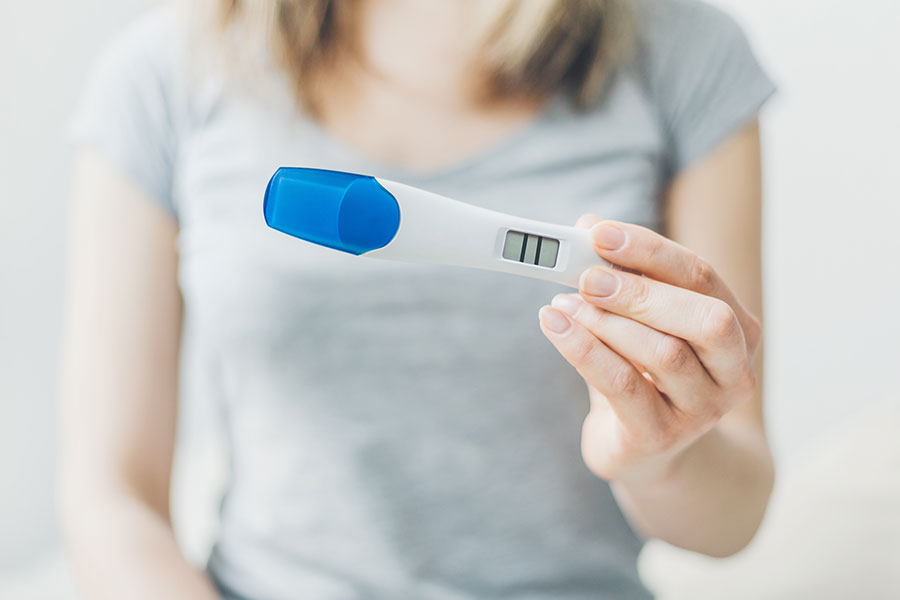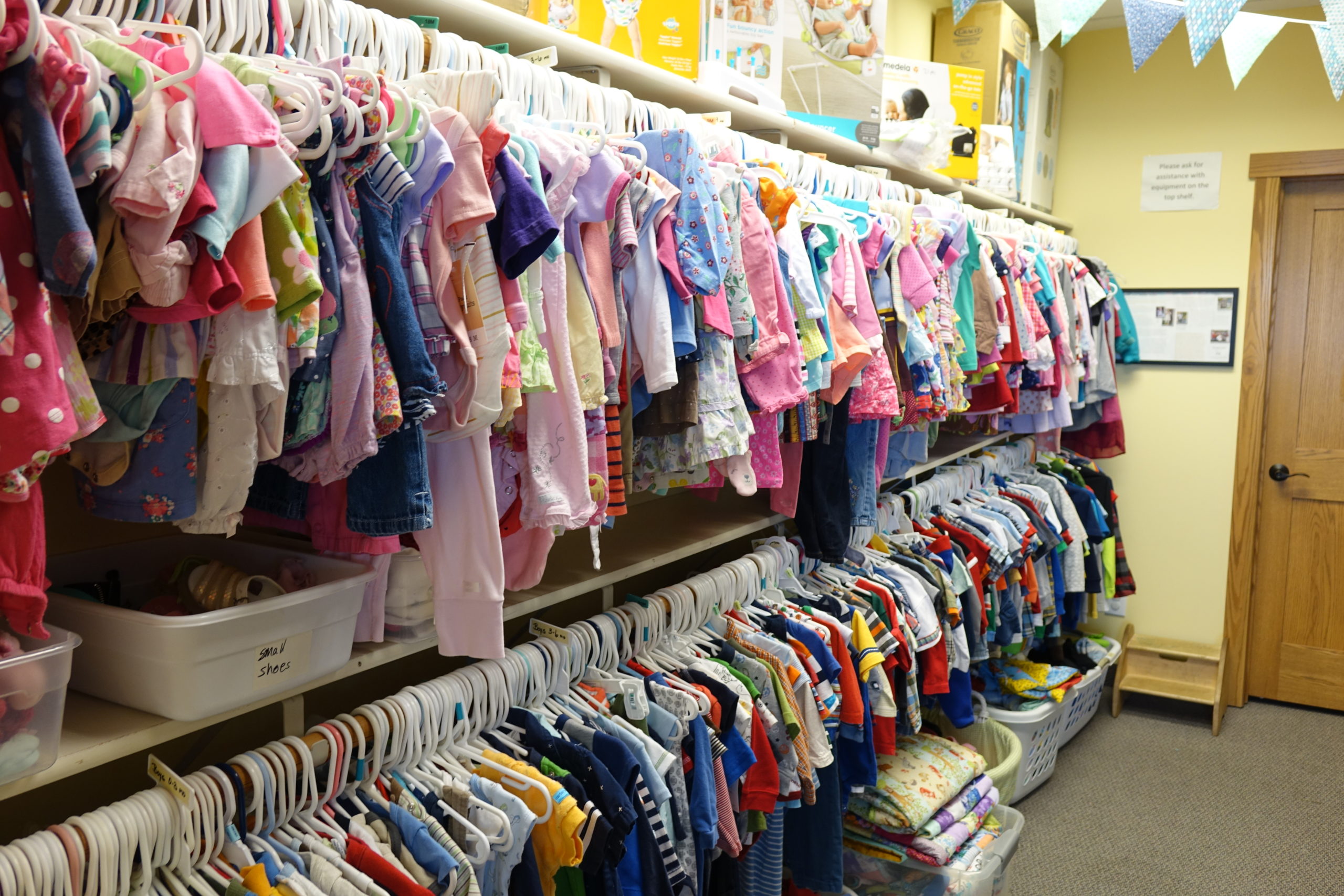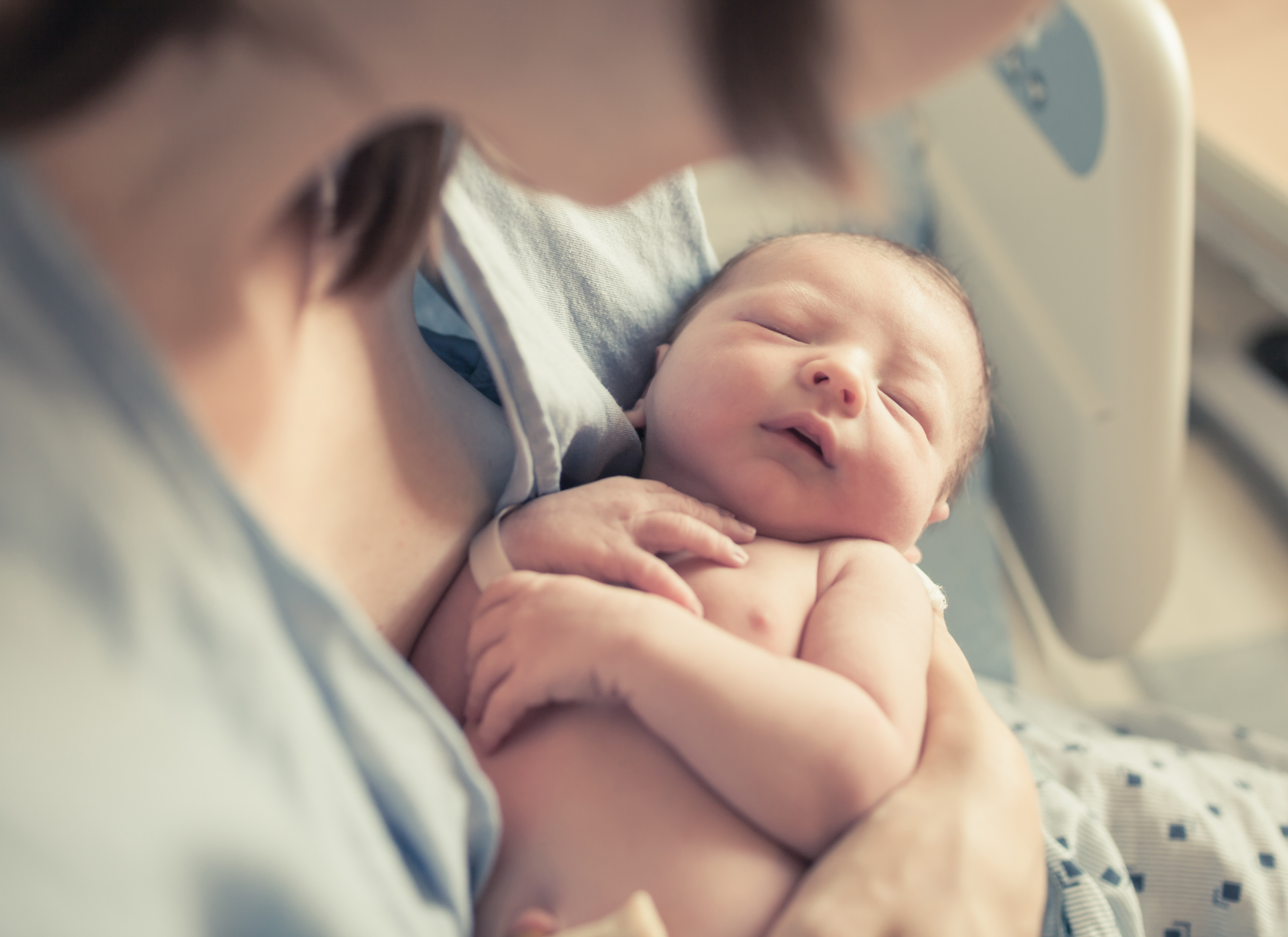
10 Signs You Might Be Pregnant
Have you ever watched one of those reality TV shows where someone didn’t know she was pregnant until she went to the hospital in labor? How did she miss the signs that she might be pregnant? It’s easy to wonder how the warning signs most women experience throughout pregnancy were missed!
You will be better prepared to identify symptoms early on in pregnancy with the list below.
Early Pregnancy Symptoms
- Missed period: Some women have very regular menstrual cycles and notice they are late right away. Being a few days late may seem normal for others with more irregular periods. Our pregnancy tests are accurate 20-24 days after a woman’s first day of her last period. By the time you have missed your period, the test is usually within the accurate time frame.
- Nausea: Women experience nausea in pregnancy at varying intensities, and some don’t experience it all. Nausea/vomiting in pregnancy is sometimes referred to as “morning sickness.” Nausea can occur at any time throughout the day or night.
- Swollen/tender breasts: Your body releases hormones that can cause breasts to feel sore, swollen, tight, or even itchy. Your breasts will go through many changes throughout pregnancy to prepare for nourishing your little one after birth.
- Fatigue: It is common for women in their first trimester to feel very tired, sometimes for no reason. This generally improves by the second trimester.
- Frequent urination: You may feel the need to urinate often as your growing uterus can press against your bladder.
- Increased appetite: You may notice you feel more hungry than usual. In addition, pregnant women often times experience intense food aversions or cravings.
- Mood changes: You may notice mood swings as changing levels of hormones can impact your ability to regulate emotions.
- Light spotting/implantation bleeding: Light spotting (noticing a pink-tinge when you wipe) that occurs about 3-4 weeks after a woman’s first day of her last period can be a sign of implantation bleeding, which is considered to be normal. Contact your doctor with any concerns surrounding heavier vaginal bleeding.
- Headaches: Headaches are commonly reported by women during pregnancy. While mild headaches early in pregnancy are generally considered to be normal, any headaches accompanied with blurred vision, dizziness, or spots in your eyes should be reported to your doctor.
- Constipation/bloating: Changing levels of hormones can slow down the passage of food through a pregnant woman’s digestive tract. Drinking water, walking, and a high-fiber diet can help promote a healthy gut.
How Do I Know For Sure?
We can help if you are questioning if you may be pregnant!
All of our First Care centers offer lab-quality pregnancy tests with results in 3-5 minutes. Walk in to one of our centers or schedule online for a free pregnancy test and support services.
London, M. L., Ladewig, P. W., Davidson, M. R., Ball, J. W., McGillis, R. C., & Cowen, K. J. (2017). Maternal & Child Nursing Care (5th ed.). Boston: Pearson Education, Inc.
Learn More
Resources for Families During COVID-19 (updated as of 4/6)
COVID-19 has been taking the headlines and impacting the world at every moment. Changes are being made daily, if not hourly, about jobs, schools, social distancing, medical services – the list goes on. Many people are in need of extra resources for their family during this time.
First Care Pregnancy Center is committed to providing you with the best care we can offer you at this time. We remain open with limited services during this time. Please call us for more detailed information, or read about our current services here.
Below is a list of resources our staff have compiled to support you and your family during this time.
General Resources
Food
- SNAP (food stamp) information and application assistance is available over the phone, from the comfort and safety of your home. Call 844-764-5513 or 651-209-7963 or apply online for benefits.
- Restaurants throughout the Twin Cities are providing free meals to those in needs.
- Serenity Church is providing food delivery for those who are immunocompromised, pregnant and/or have a disability (or child with disability) and cannot leave home. Email your name, address, phone number, and number of people in your household to kiley.benson@serenityvillagecc.org and the church will deliver (meats, milk, produce, bakery items) usually within 24-36 hours. They are delivering to Ramsey, Hennepin, and Anoka counties.
Insurance
MNsure is offering a special enrollment period (SEP) for qualified individuals who are currently without insurance in response to the potential growth of coronavirus (COVID-19) cases. This SEP will allow uninsured individuals 30 days to enroll in health insurance coverage through MNsure.
This SEP runs Monday, March 23 through Tuesday, April 21. You must select a plan by 11:59 p.m. April 21. Coverage will start Wednesday, April 1. (If you enroll after April 1 and by 11:59 p.m. on April 21, your coverage will have a retroactive start date of April 1.)
https://www.mnsure.org/new-customers/enrollment-deadlines/special-enrollment/covid19-sep.jsp?
Housing
As of March 18th, 2020, all foreclosures and evictions are suspended through April 30th, 2020 per Emergency Executive Order 20-14 by Minnesota Governor Walz.
Parenting
Connected Families offers information about how to manage sibling conflict.
Spiritual Support & Basic Needs
Contact your local First Care office to speak with a licensed social worker or client advocate to get connected with a local church that can provide you with spiritual support and basic needs care.
Minnesota COVID-19 Hotlines
Please contact the following numbers for questions about:
- Schools, child care, businesses: Call 651-297-1304 or 1-800-657-3504
- Health questions: Call 651-201-3920 or 1-800-657-3903
Resources by County
Hennepin County
Housing: For those experiencing homelessness, please call the following:
Adults: Call 612-248-2350.
Families: Call 612-348-9410. On holidays, weekends, and evenings until 11 p.m., call 211 (mobile: 651-291-0211) and ask for the after-hours shelter team.
Domestic Abuse: Advocacy, orders for protection and safety planning services can be accessed by calling 612-348-5073.
Financial Assistance: Applications for cash assistance, child care assistance, emergency assistance, health insurance, and SNAP are still being accepted. Call to apply at 612-596-1300, apply online or fax in documents to 612-288-2981 (612-288-2982 for child care assistance documents).
Additional Resources: For more information on these resources and more, visit the Hennepin County website.
Ramsey County
General Support: The Ramsey County Sheriff’s Office has formed The Help Team made up of deputy and civiliant employees who will support anyone in Ramsey County who needs assistance as a result of COVID-19. Support includes the pick-up and delivery of prescription medication, pre-paid food, and groceries; delivery of food, medication, and other essentials that have been donated; coordination of the collection of donated items based on current community needs; and, provide referrals, including social services, financial assistance, medical assistance, mental health, and others. Call, text, or email for assistance from 8:00 am to 8:00 pm Monday through Friday, and from 10:00 am to 4:00 pm on Saturday and Sunday. The phone number 651-448-3874 (call or text) and the email address is HelpTeam@co.ramsey.mn.us.
Food: St. Paul Public Schools provide meals from its food truck every weekday during spring break, March 30-April 3. Unlike the last two weeks, the truck will provide one meal per person, per day. The six locations are the same as this week (Battle Creek, Cherokee Heights, Como Senior, Harding Senior, Highland Park Senior and Johnson Senior), but the times are different. Find the full schedule here.
Housing: Dorothy Day Shelter/Mary Hall is the only shelter that is open for those experiencing homelessness. Beginning Friday, March 27, the shelter will provide 24/7 symptom monitoring, meals, security and transportation to and from the site for individuals experiencing homelessness. Residents will be accepted on a referral basis from Catholic Charities Higher Ground (612-204-8552), Union Gospel Mission (651-228-1800 for women and children; 651-789-7599 for men) and Ramsey County Safe Space (651-266-4483) shelter facilities based on screening protocols from the Centers for Disease Control and Housing and Urban Development.
Mental Health: Ramsey County residents who are experiencing stress and mental health symptoms as a result of COVID-19 are encouraged to call the county’s Crisis Team for support and resources. The county’s two crisis lines continue to operate 24 hours a day, seven days a week.
- Children’s Mental Health Crisis Line: 651-266-7878.
- Adult Mental Health Crisis Line: 651-266-7900.
Additional Resources: For more information on these resources and a more complete list, visit the Ramsey County website.
Olmsted County
Food: Channel One Food Shelf (131 35th Street SE, Rochester, MN 55904) is open Monday-Thursday from 8:00am-6:00pm and Friday 8:00am-12:00pm for drive-up/curb-side registration and pick up ONLY. If families are already registered, they can check in with the Channel One “community card” or Channel One ID number. Households can also check in with the name of the head of the household and their birthdate. New households can register curbside with the name of the head of the household and their birthdate, without further verifications.
The Post Bulletin is compiling a complete list of restaurants/organizations offering free food.
Health Insurance: MNSure Health Insurance is providing a special emergency enrollment period between March 23 and April 21. If you do not have health insurance, register now.
Mental Health: In response to the COVID-19 pandemic, Family Service Rochester has launched new telehealth counseling services, which you can schedule by calling 507-287-2010. After filling out a couple of online forms, you’ll use your smartphone, laptop, or tablet to talk to a mental health professional.
Additional Resources: For more information on these resources and a complete list of Olmsted County resources, please visit The Post Bulletin.
Learn More
Your Pregnancy Part 2: The Second Trimester
Many women will say that the second trimester is their favorite trimester of their pregnancy journey! This is due to it being the most comfortable trimester out of all three. The second trimester takes you from week 14 through week 27. Overall, your pregnancy is well established, your nausea might have gone away, and you might be sleeping better as well.
One fun fact about the second trimester is that your baby begins to hear during the second trimester. Therefore, your baby might start to recognize your voice and also respond to sounds outside the womb!
Here are a few changes you might notice in your body during the second trimester:
- Increased hunger and energy overall
- Feeling your baby move inside you more (maybe feeling like butterflies or gas bubbles)
- Your stomach will start showing you are pregnant to others
- You may need maternity clothes or larger bras to accommodate the body changes
- You may have some nasal congestion due to increased blood flow to your mucous membranes
- Potentially experience mild swelling in your ankles and feet
- You may experience sensitive gums and maybe bleeding- be sure to see your dentist if you experience any bright red or bleeding gums
During the second trimester, your baby will grow from the size of a peach to the size of a cantaloupe. Your baby’s senses will start developing and your baby will move around a lot!
Here is what is happening to the baby during the second trimester:
Weeks 14-17:
- The baby’s skin is covered in lanugo (soft hair that will eventually go away)
- The baby will start to gain weight quickly
- The baby’s genitals normally can be seen around week 16
Weeks 18-21:
- The baby becomes much more active and kicks more strongly
- The baby might swallow and suck it’s thumb
- The baby’s senses are developing and the baby might be able to hear
Weeks 22-27:
- The baby has times to be awake and also times to sleep
- The baby can open it’s eyes
- The baby might be able to recognize familiar voices like mom’s or dad’s
Lastly, there are a few tests that are done in the second trimester that you should expect from your doctor. They are as follows:
- Fetal Anatomy Survey– Is an ultrasound that is performed sometime between 18 and 20 weeks. This ultrasound looks at fetal size and anatomy including the baby’s organs. It can screen for potential concerns like the location of the placenta or the amount on amniotic fluid your baby has. At this ultrasound, the gender of your baby might be able to be seen! Therefore, you can let the ultrasound technician know if you would like to see the gender or have it be a surprise for delivery!
- Glucose Tolerance Test– This test will let the mother know if she has gestational diabetes with the pregnancy. The test is typically done between 24 and 28 weeks, but can be done earlier if there are risk factors for gestational diabetes. Gestational diabetes can cause problems for the mother and baby during pregnancy and after birth, so it is important to be screened. During the test, mom is asked to drink a concentrated sugar solution. After an hour, mom’s blood is drawn and blood sugar levels are tested. If the results are abnormal, typically a 3 hour glucose tolerance test is performed.
Enjoy every minute of the second trimester and your growing baby, you have so much to look forward to! Also consider joining us for one of our prenatal or birth classes.
Source: Understanding Pregnancy: A Comprehensive Guide. (2012). InJoy Productions, Inc.
Learn More
If I Choose Abortion, How Will the Decision Impact Me Now and in the Future?
While the gift of time is priceless when making a big decision, it’s also important to consider the various outcomes to the “forever” decisions you are considering making. Be informed and think through all possible outcomes before coming to a decision about abortion. Look at all the details of how this decision could impact you not just today, but a week, year or even 20+ years from now.
Ask Yourself, How Long Will This Crisis Last? Look at Each Possible Outcome.
For example, a woman learns she is pregnant and just started college. The initial thought may be, “How could I go to school and care for a baby?” Abortion may sound like a simple answer. After all, you know women who have had abortions and they seem fine. Life will go on. While life does go on, that’s not the whole picture.
Emotional Risks
The truth is, abortion related PTSS (post traumatic stress syndrome) is real and affects a large number of women with symptoms often manifesting years after the abortion.
Emotional symptoms include, but are not limited to:
- Guilt
- Grief
- Shame
- Anxiety
- Depression
- Low Self-Esteem
- Relationship Issues
- Intimacy Issues
- Thoughts of Self Harm
- Anger Toward Self and Others
- Fear
Physical Risks
There are medical risks* of having an abortion to consider:
- Incomplete Abortion
- Blood Clots in the Uterus
- Heavy Bleeding (hemorrhage)
- Cut or Torn Cervix
- Perforation of the Uterus Wall
- Anesthesia Related Complications
- Painful Cramping
There are also long-term consequences to abortion often not talked about. Many women struggle with infertility, have increased risk of ectopic pregnancy, or struggle with new or increased substance or alcohol abuse.
It’s Important To Have All the Facts When Making a “Forever” Decision.
Now let’s look at the example situation again, you’re in college, pregnant and feel abortion is your only option. Use that gift of time to really think through all options to this forever decision. The crisis you may find yourself in today, may look much more manageable tomorrow. Abortion is a forever decision, one we cannot undo.
Learn From Others
As you make a decision, also consider talking with someone who has experienced abortion and can provide an honest assessment of their experience. At First Care we are happy to put you in touch with our staff or others who have experienced abortion and can answer some of your questions.
Some of the women who have come through our post-abortion healing program have shared their stories with us, including the following thoughts about their abortion decision:
“I wish with all my being, I could take back what I did.”
“They all said I would be okay after…but I’m not.”
“20 years later, I still struggle with great depression and grief.”
“I feel selfish…I feel stupid for getting pregnant in the first place…Before this I never believed in abortion… I have let myself and my family down…”
“After the abortion, I looked in the mirror and didn’t recognize myself.”
“I felt like a monster for killing my child.”
“Looking back at the situation, I could have had my baby and been okay.”
Find Support
If you are worried about how carrying a pregnancy may impact your future goals and plans for your life, we have staff available to help you talk through those concerns. We also have a variety of resources we can help connect you with as well.
We won’t tell you what to do or not do.
We won’t pressure you.
We will provide a place for you to process and think through the impact of your pregnancy decision now and in the future so you can make a well informed decision that you’ll feel positive about today and in the future.
Schedule an Appointment
Schedule an appointment for Options Counseling to talk with someone about your options.
*taken from “If You are Pregnant” from the Minnesota Department of Health
Learn More
4 Things to Consider Before Scheduling an Abortion
If you are pregnant and are considering abortion, here are four things to consider before making any decision for your pregnancy.
#1: Am I Actually Pregnant?
In the pregnancy center world, “viable” means that baby is implanted in the uterus and there is a heartbeat. Approximately 8-20% of pregnancies end in miscarriage according to Mayo Clinic. It is important to make sure your pregnancy is viable so you don’t have to go through the unnecessary medical procedure of having an abortion.
Here at First Care we offer free lab-quality pregnancy tests and ultrasounds to help you confirm you have a viable pregnancy and determine how far along you are.
#2: What Types of Procedures are Available to Me and What are the Associated Risks?
There are different abortion procedures available depending on how far along you are. Take time to understand the medical procedures and potential risks involved. Schedule an appointment today to meet with a trained staff member and discuss the risks and procedures of an abortion.
#3: How Could an Abortion Impact My Future?
Many women say they experience a deep emotional impact after abortion. For some, feelings of regret or grief come right away. For others, these or other feelings come later in life; during a subsequent pregnancy, or after they have raised their children and are in a new stage of life.
No matter when these emotions impact a woman, it can be difficult to come to terms with the finality that comes with abortion. For many women, it’s not as they hoped; life doesn’t go back to the way it was before the abortion. It is important to think through the long-term effects an abortion could have on your life today and 5, 10, and 20 years from now.
#4: Have I Considered All My Options?
You have three choices when experiencing an unplanned pregnancy: have an abortion, place for adoption, or parent. All options are life-changing choices that only you can make. Take time and make an informed decision. Whatever decision you make now will impact your future. Whatever advice you’ve been given, you owe it to yourself and your future to stop and give yourself time to process.
First Care offers free pregnancy options counseling. We will listen to your fears, dreams, and uncertainty. You will gain a better understanding of your options and get the support you deserve.
Remember you are not alone!
Whether you choose abortion, parenting, or adoption, it is a forever decision that will change your life. We are here to support you as you take that next step. Schedule an appointment to talk with someone today.
Learn More
How Will Having a Baby Affect Me and My Future?
Becoming a parent is a life-changing event. Not only does your care-free life seem to disappear, but now you have to keep another human alive. Although this all may sound scary, and to be honest, it can be, we don’t want you to walk alone in your journey. Having a baby will affect you and your future, but as many parents have shared with us, this does not have to be a bad thing.
So how will having a baby affect you and your future?
Financially
Babies cost a lot of money. Although there are a lot of factors that can contribute to how much or how little is spend on babies, like formula, child care and doctor’s visits, the estimated cost of raising a child for the first year of their life is around $10,000-$13,000. First Care Pregnancy Center provides numerous community resources and referrals to help lighten the financial burden of parenthood. In addition, through our Every Family parenting program, parents can receive diapers, wipes, clothing, and equipment for their children.
Socially
We have a lot of parents tell us that their social lives change once they have a child. No longer is it easy to just go out with friends or take a spontaneous weekend trip. Caring for a baby can definitely affect your social life, but sometimes this can be in a positive way. For many parents, their friend groups may shift to other moms that can support one another and they find more encouragement and life from these friendships! But don’t worry, the friends who are really invested in your life will be right there by your side as you become a new parent.
Physically
There are obvious physical changes that will happen to a woman’s body when she carries a baby and gives birth, but other physical things will happen too, like sleep deprivation and joy you’ve never felt before. A lot of new parents say that their lives forever changed the moment they held their baby for the first time, or even the moment they saw their little one on the ultrasound screen. To help prepare for birth and the first weeks as a parent, consider joining one of our prenatal, birth, or mothering classes.
Emotionally
Hormones can play an obvious role in the emotional aspect of becoming a parent. From immense joy, bringing you to tears at the drop of a hat, to feelings of disparity and hopelessness, these emotions can come and go sometimes all in the same day – and they are normal, to some degree. A large part of this is hormones, but also becoming a parent opens your eyes to a different angle of the world. Suddenly, a normal activity for you before you became pregnant feels like a death trap. If you died, what would happen to your child? Are you putting your child in danger? The emotions are real!
Schedule an Appointment
Although having a baby and becoming a parent can be life-changing, you do not have to walk that path alone. The professional staff at First Care are here to walk with you as you take the steps to become a successful parent. Through our parenting education program and support from our client care workers, we can address any needs and possible fears you may have about becoming a parent. We will help you make goals and work towards achieving these goals to make your dreams a reality. Because having a baby will affect your life, and your priorities may change a little, but you should still be able to dream of a future for yourself, and your new little one.
Learn More